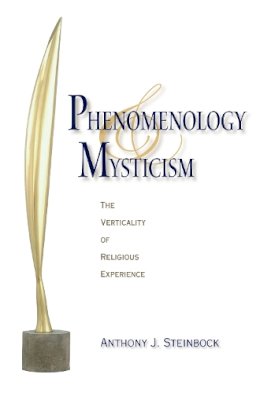
Phenomenology and Mysticism: The Verticality of Religious Experience
Anthony J. Steinbock
Exploring the first-person narratives of three figures from the Christian, Jewish, and Islamic mystical traditions—St. Teresa of Avila, Rabbi Dov Baer, and Rūzbihān Baqlī—Anthony J. Steinbock provides a complete phenomenology of mysticism based in the Abrahamic religious traditions. He relates a broad range of religious experiences, or verticality, to philosophical problems of evidence, selfhood, and otherness. From this philosophical description of vertical experience, Steinbock develops a social and cultural critique in terms of idolatry—as pride, secularism, and fundamentalism—and suggests that contemporary understandings of human experience must come from a fuller, more open view of religious experience.
Product Details
About Anthony J. Steinbock
Reviews for Phenomenology and Mysticism: The Verticality of Religious Experience
Choice
Phenomenology and Mysticism stands out as an original work in a genre too often reduced to commentaries on classical figures. Steinbock is an acute phenomenologist in his own right, and this work sets a new standard for the interaction between phenomenology and theology/religious studies.VOLUME 35.1 MARCH 2009
Andreas Nordlander
Lund University, Sweden
. . . an incredibly rich book about the phenomenology of mystical experience in the Abrahamic traditions, a book that will certainly be required reading for anyone working in the areas of religious experience and the intersection between theology and philosophy, especially in the continental tradition.Vol. 31 2009
Andreas Nordlander
Pneuma Jrnl Society for Pentecostal Studies
A single short review of this treatise suggests a light approach which does not [do] justice to this profound work. The thoughts and insights gathered and proposed by Steinbock provoke an equally concerted response and offer topics for discussion on many different disciplinary levels.
Philosophy in Review
Broader contributions from Phenomenology and Mysticism rest in careful engagement with philosophical phenomenology, not simply as a descriptive method, but as a coherent disciplinary field with potential theoretical resources to address ranges of phenomena beyond those that are typically evoked.Vol. 9 December 2008
Janet Borgerson
University of Exeter
